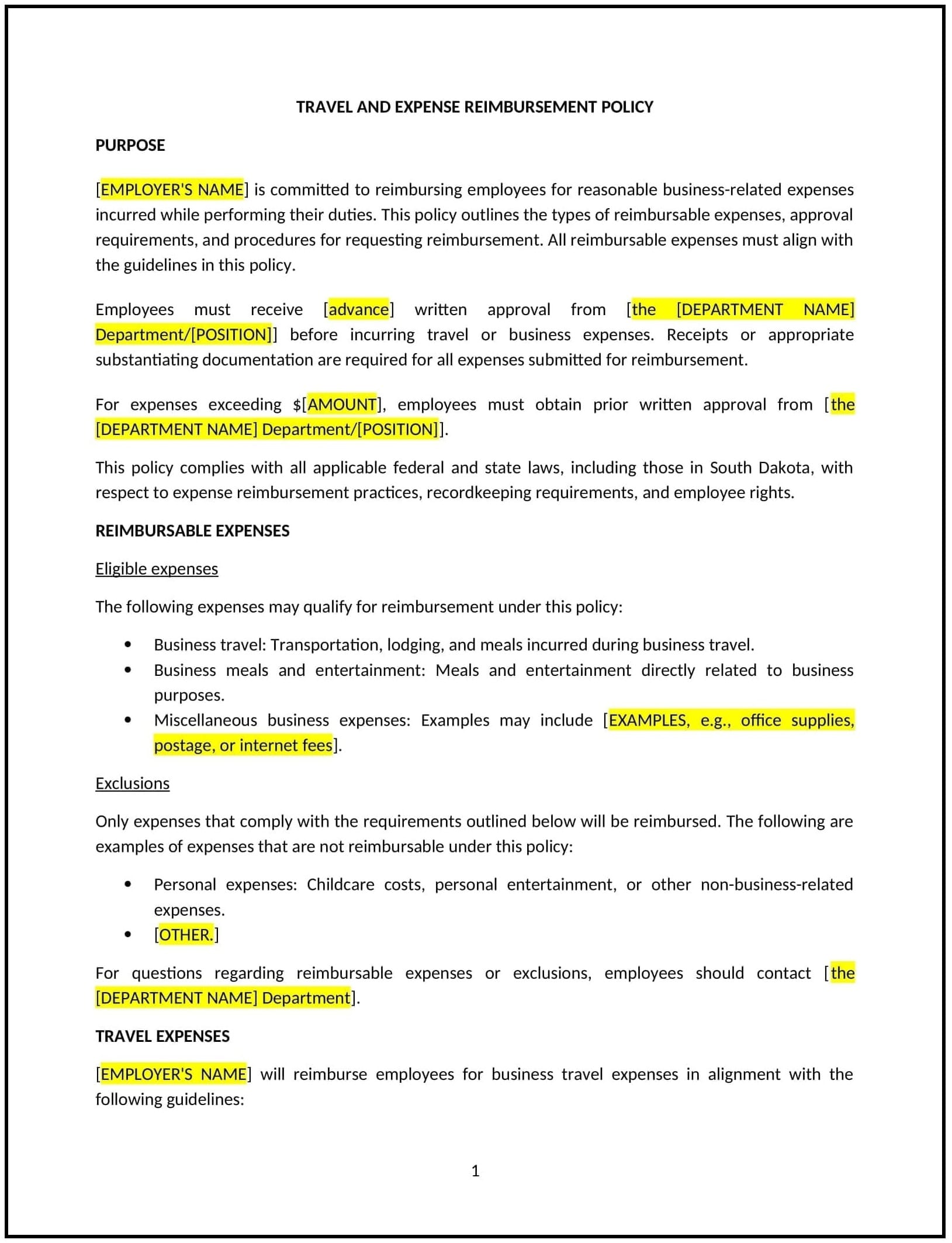Travel and expense reimbursement policy (South Dakota): Free template
Got contracts to review? While you're here for policies, let Cobrief make contract review effortless—start your free review now.

Customize this template for free
Travel and expense reimbursement policy (South Dakota)
This travel and expense reimbursement policy is designed to help South Dakota businesses establish clear guidelines for employees who incur expenses while traveling for work. It outlines eligible expenses, reimbursement procedures, and documentation requirements.
By adopting this policy, businesses can ensure fair and consistent reimbursement practices, reduce financial risks, and align with general best practices for expense management.
How to use this travel and expense reimbursement policy (South Dakota)
- Define eligible expenses: Specify which expenses are reimbursable, such as airfare, lodging, meals, and transportation.
- Set spending limits: Provide guidelines for reasonable spending on travel-related expenses, such as daily meal allowances or hotel rates.
- Outline reimbursement procedures: Explain the steps employees must follow to submit expense reports and receive reimbursement.
- Require documentation: Specify the types of documentation needed, such as receipts or invoices, to support reimbursement requests.
- Address non-compliance: Outline consequences for submitting improper or fraudulent expense reports.
- Train employees: Educate employees on the policy’s requirements and procedures for submitting expense reports.
- Review and update: Assess the policy annually to ensure it aligns with evolving business needs and industry standards.
Benefits of using this travel and expense reimbursement policy (South Dakota)
This policy offers several advantages for South Dakota businesses:
- Ensures fairness: Provides clear guidelines for reimbursing employees, promoting consistency and transparency.
- Reduces financial risks: Helps prevent overspending and fraudulent expense claims.
- Aligns with best practices: Demonstrates a commitment to responsible financial management and accountability.
- Enhances employee satisfaction: Shows employees that the business values their contributions and covers legitimate work-related expenses.
- Simplifies processes: Streamlines expense reporting and reimbursement procedures for employees and finance teams.
Tips for using this travel and expense reimbursement policy (South Dakota)
- Communicate the policy: Share the policy with employees and include it in the employee handbook.
- Provide training: Educate employees on how to submit expense reports and adhere to the policy’s guidelines.
- Monitor compliance: Regularly review expense reports to ensure adherence to the policy.
- Address issues promptly: Take corrective action if improper or fraudulent expense claims are submitted.
- Update regularly: Review the policy annually to ensure it remains relevant and effective.